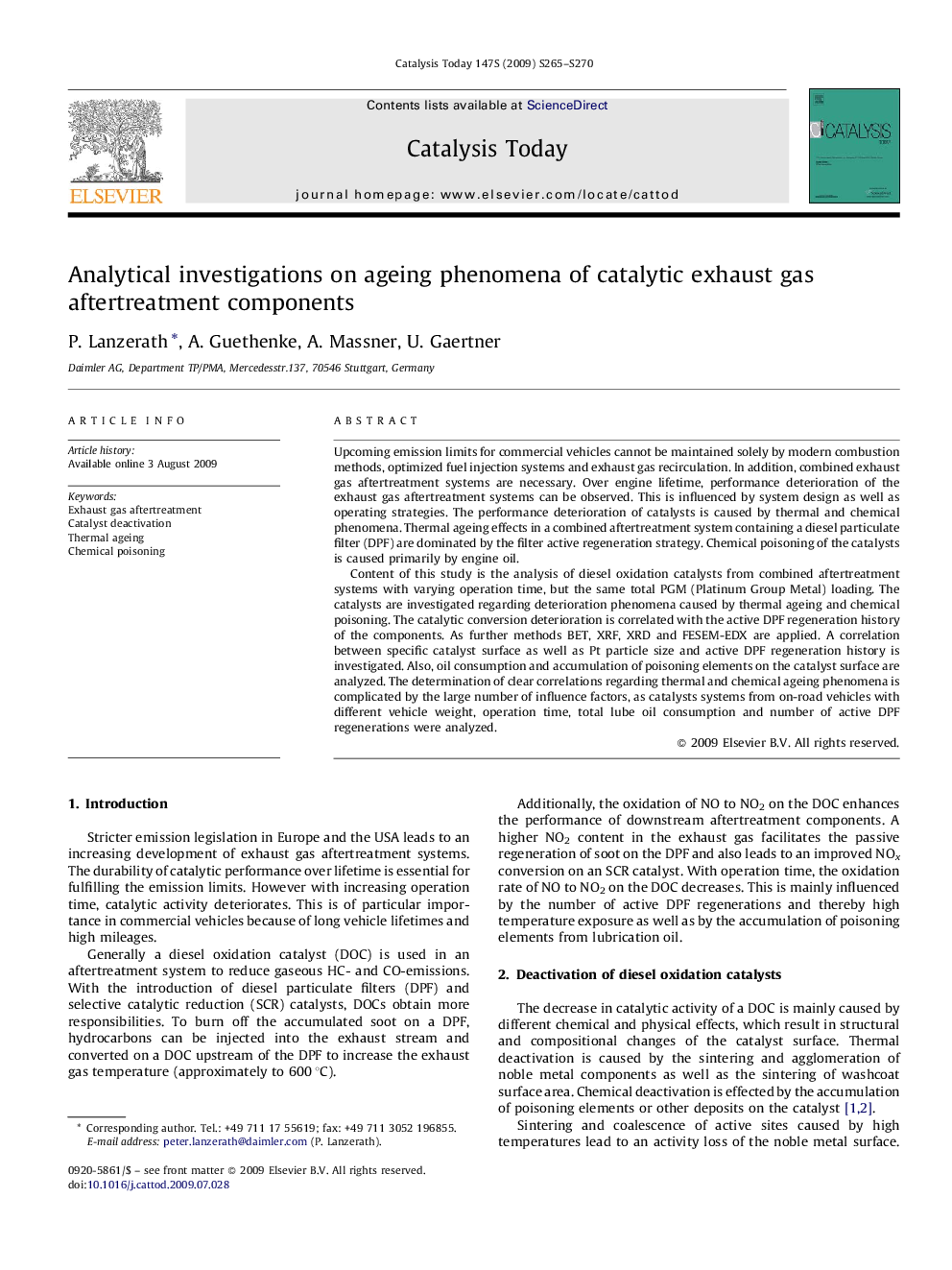| Article ID | Journal | Published Year | Pages | File Type |
|---|---|---|---|---|
| 57104 | Catalysis Today | 2009 | 6 Pages |
Upcoming emission limits for commercial vehicles cannot be maintained solely by modern combustion methods, optimized fuel injection systems and exhaust gas recirculation. In addition, combined exhaust gas aftertreatment systems are necessary. Over engine lifetime, performance deterioration of the exhaust gas aftertreatment systems can be observed. This is influenced by system design as well as operating strategies. The performance deterioration of catalysts is caused by thermal and chemical phenomena. Thermal ageing effects in a combined aftertreatment system containing a diesel particulate filter (DPF) are dominated by the filter active regeneration strategy. Chemical poisoning of the catalysts is caused primarily by engine oil.Content of this study is the analysis of diesel oxidation catalysts from combined aftertreatment systems with varying operation time, but the same total PGM (Platinum Group Metal) loading. The catalysts are investigated regarding deterioration phenomena caused by thermal ageing and chemical poisoning. The catalytic conversion deterioration is correlated with the active DPF regeneration history of the components. As further methods BET, XRF, XRD and FESEM-EDX are applied. A correlation between specific catalyst surface as well as Pt particle size and active DPF regeneration history is investigated. Also, oil consumption and accumulation of poisoning elements on the catalyst surface are analyzed. The determination of clear correlations regarding thermal and chemical ageing phenomena is complicated by the large number of influence factors, as catalysts systems from on-road vehicles with different vehicle weight, operation time, total lube oil consumption and number of active DPF regenerations were analyzed.
